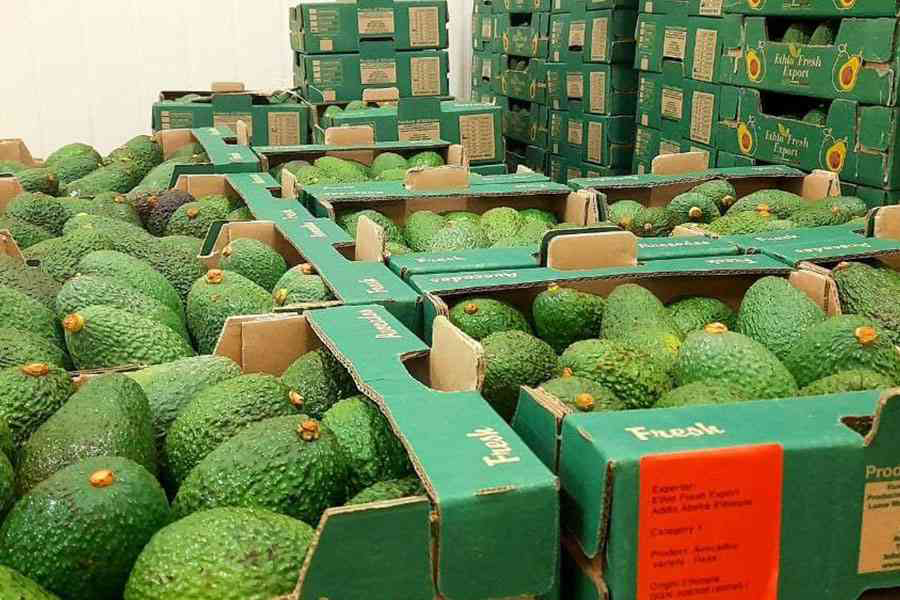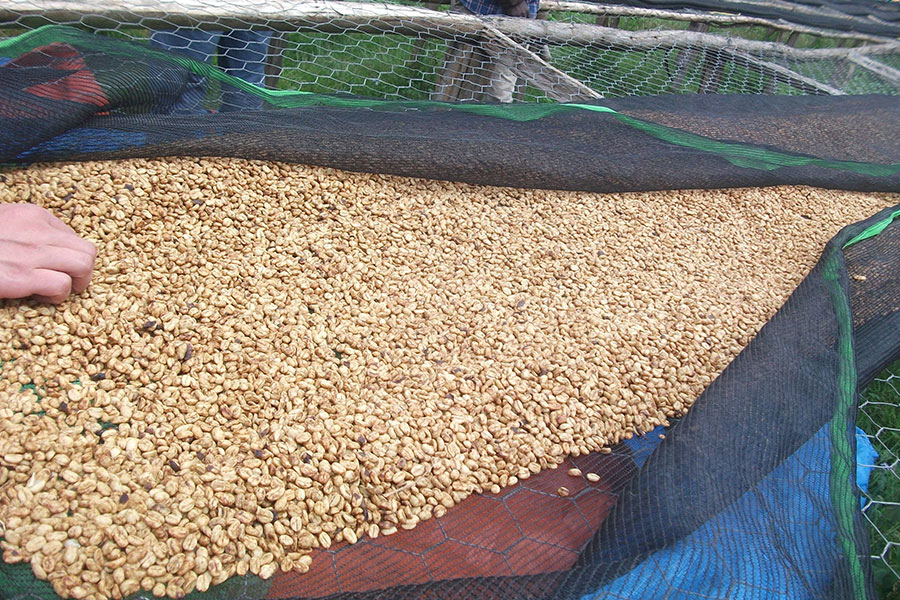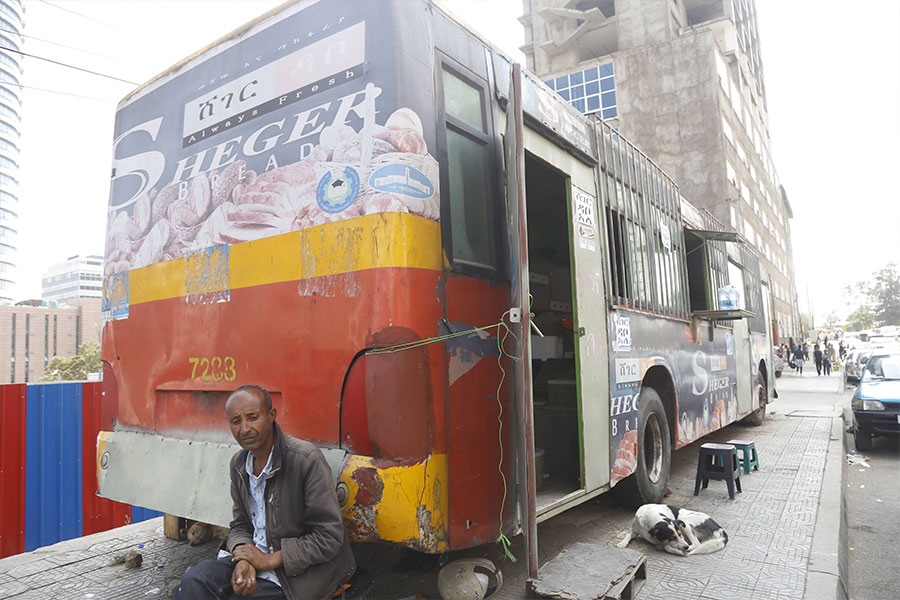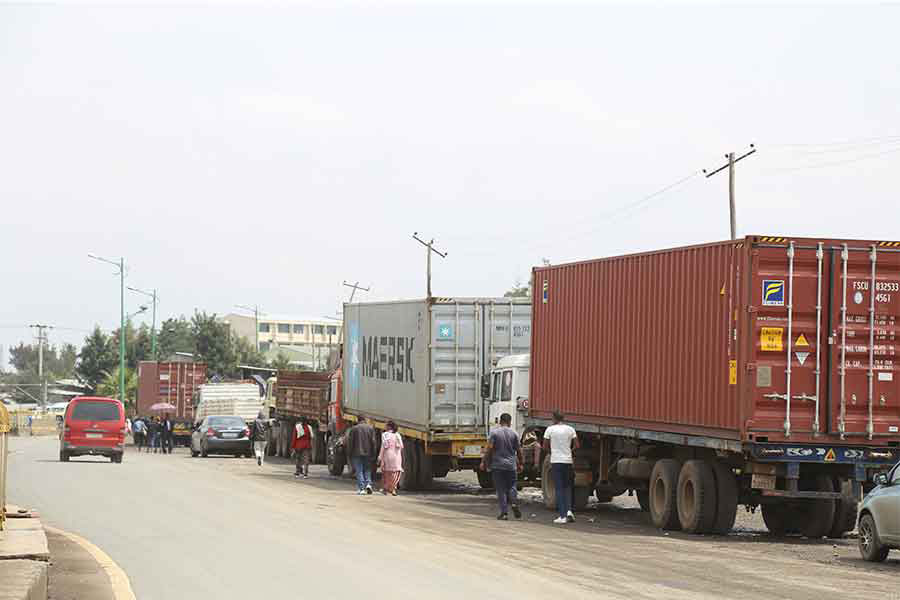
Wosenachew Tassew was a teacher in an Addis Abeba private school not too long ago. The 30-year-old eked out a decent living as an educator, enough to provide for his family of four. Still, he was in search of something more rewarding.
Agriculture offered Wosenachew what he was looking for. The tidy profits small-scale commercial farmers could potentially pocket appealed to him. Two years ago, he embarked on cultivating a high-yield variety of tomatoes after renting out a five-hectare plot in Awash, Oromia Regional State, over 200Km east of the capital. He had high hopes of a good return for his investment. Last September, Wosenachew oversaw the cultivation of 600qtl of tomato, spending 600,000 Br.
He reaped what he sowed, earning a neat 2.1 million Br in revenues after selling his produce for 3,500 Br a quintal. It was a promising start.
The initial success spurred him to double down on his investment. Five months ago, he poured another 700,000 Br into the farm, hoping to harvest 650qtl in yield. However, the market had a nasty surprise in store for Wosenachew. Last week, he sold his produce at 18 Br a kilo. It is a fraction of what he had hoped the tomatoes would fetch in Addis Abeba's markets, though he sold his stock in time to avoid even lower prices. Some farmers are selling for as little as seven Birr a kilo.
The disappointing returns result from a surplus flooding the capital, driving retail prices down to as low as 15 Br a kilo. It is half of what consumers paid for their tomatoes a month ago.
"I lost big time," Wesenachew told Fortune.
Prices for other agricultural commodities, particularly vegetables such as potatoes, have also seen a slight drop over the past couple of weeks.
The diverse climate and topography make large swaths of Ethiopia ideal for cultivating fruits and vegetables. Commercial farmers near urban areas have long been involved in horticulture, though small-scale farmers in rural and remote areas also grow these crops. Close to seven million farmers grow vegetables on 243,000hct of land – around 1.6pc of farmland harvested last Mehir season. Red pepper and cabbage account for the lion's share, at 69pc and 18pc.
Another 6.8 million farmers grow fruits on 161,000hct of land. Banana, avocado, and mango are the most common of the 14.2 million quintals of fruits harvested last year. The bulk is produced on small-scale commercial farms that supply markets for essentially home consumption. Combined, fruits and vegetables covered three percent of the land used for major crops last harvest season. It represents a 200pc growth in production over the past decade.
Consumption has been growing, too. Consumers' demand hopped by around a third in rural and urban areas. In the capital, the growth is readily observed by the mushrooming supermarkets, shops, and stands selling horticultural products.
Tomato farmers like Wosenachew have been thriving as well, with production reaching 419,000qtl last year. It was over a fifth higher than what farmers grew the previous year.
However, the growth also brings with it its own challenges. Fruits and vegetables have much shorter shelf lives than other agricultural produces. They need to be sold quickly.
A production surplus has led to a drastic fall in the prices tomato farmers ask for their crops. Retail prices in the capital have also dropped by half in recent weeks.
The puzzle forced Wosenachew to let his tomatoes go for discounted prices.
In a time of surplus, farmers like him could prolong the shelf life of perishable agricultural produce like tomatoes using processing methods. Had there been a developed and advanced agro-processing industry, Wosenachew and many commercial farmers would have been better off. Very few companies are engaged in agro processing. Only three tomato paste processing plants exist in Ethiopia.
Upper Awash Agro Industry Enterprise is one of these.
Established in 1979 as a public enterprise, it is the largest agro processor. Developed on a vast land along the upper bank of the Awash River, in Oromia Regional State, the farm produces fresh fruits like oranges, mandarins and tropical fruits such as mango and processes tomato paste and tomato juice. Privatised in 2013 to the MIDROC Investment Group, the Enterprise has been the only large-scale agro processing plant for three decades.
The list has grown longer since, though the agro-processors struggle to keep afloat.
Nurha Business Group is among those that have embarked on agro-processing ventures in recent decades. Incorporated in 1996, it has six subsidiary companies, including Nuredin Juice & Jam Plc. It has a strawberry paste processing plant, one of five jam processing companies to open over the past decade.
Nuredin's plant, around the Haile Garment area on the southwestern edges of the capital, opened in 2013 with an initial capital of 23 million Br. It used to produce strawberry jam under the "Raha Jams" brand, sourcing the fruit from two farms the company leased in the Oromia Regional State. However, the farms ceased production in 2019, leading to the closure of the strawberry paste processing plant.
“We couldn't continue without a sustainable supply of raw materials,” said Nuredin Hassen, founder and general manager of the company.
Not having a dependable supply and difficulties accessing foreign currency to import packaging materials have made it "impossible" to keep the plant running.
The experience is no different for Elfora Agro-Industries Plc, another subsidiary of the MIDROC Investment Group in poultry, food processing, and animal husbandry. Incorporated in 1997, Elfora owns two processing plants in Combolcha and Hawassa, where vegetable soup is packed, sourcing inputs from farms in Meqi and Hawassa.
Elfora's General Manager, Solomon Assefa, blames the absence of incentives for the tribulation the agro-processing industry faces.
Quality of the produce and dependable supplies remain pressing issues. Solomon sees the industry suffering from tremendous pre- and post-harvest losses. Experts at the Ministry of Agriculture (MoA) estimate that product wastage between the farm and consumers reaches 40pc for fresh produce and half for cereal crops.
Agro-industrialisation remains at a nascent stage, characterised by an early stage of development, employing simple technologies and dominated by small and micro enterprises. There are few cold chain facilities and limited transport logistics, threatening the survival of these companies. The involvement of intermediaries in fruit and vegetable supply chains is blamed for contributing to wastage and inefficiency.
Most agro-processing plants work well below their installed capacity.
Agriculture remains the single most important economic sector, but agro-industries account for less than five percent of the gross domestic product (GDP). Industry players say this is partly due to a dearth of attention from the government, though it is changing. Over the past two decades, policymakers' attention has shifted towards a focus on boosting the manufacturing sector.
Successive policymakers have had an obstinate engagement with the manufacturing sector, desperate to see an economy transforming from depending on subsistence farming. They put much of their weight behind 18,000 small and medium-scale manufacturing businesses. Two-thirds of these companies are concentrated in and around Addis Abeba, employing more than half a million people.
The manufacturing sector has yet to live up to the promise despite the attention. It is clung to a low-quality trap, while industrial labour productivity remains extremely low, even by African standards. Its contribution to the GDP was 5.4pc in 2020, sharply declining from the all time high of 6.3pc three years earlier.
This has done little to discourage economic planners at the federal government who want to see industrialisation drive economic growth over the coming decade, aspiring to double its contribution to GDP to 27pc in three years. Nonetheless, experts argue that the early stages of economic development require agriculture-driven growth.
One of these experts is Assefa Admassie (PhD), an economics professor who once served the Ethiopian Economics Association as a president.
Assefa argues that agriculture can serve to link itself and other sectors for agricultural-demand-led industrialisation rather than export-driven growth.
This might have been what policymakers had in mind when they began efforts to establish agro-industrial parks in 2017. Intended to link smallholder farmers and agro-processors, the federal government has previously stated its intentions to set up no less than 17 of these parks. Thus far, four parks have been erected at an investment of 181.2 million dollars. They hope these parks bring 1.5 billion dollars in investments and create nearly half a million jobs.
Among the parks is Yirgalem Integrated Agro-Industrial Park in the Sidama Regional State. Developed on 294hct of land, the park took 60 million dollars in investment when inaugurated last year. It was the second of its kind, following a park in Bure, Amhara Regional State, which opened a month earlier.
Yirgalem houses five agro-processing companies, three of which have started operations. Two of these, YBM Trading Plc and Sunvado Manufacturing Plc, process avocado, supplying to the international market. Two other coffee and honey processing companies are in trial production, according to Hailu Yetera, deputy chief executive officer (CEO) of Yirgalem Integrated Agro-Industrial Park.
A recycling firm has also submitted a request to set up a plant for processing animal feed from avocado byproducts, Hailu disclosed to Fortune.
Yet, the park is running below capacity.
"We've got the infrastructure in place," said Hailu. "Delays on investors' side are holding us back."
Things are not much different with Bure Integrated Agro-Industrial Park, which saw its first phase of construction completed at the cost of 169 million dollars last year. Richland Biochemical Production Plc is among the tenants in the 260hct park.
The company has processed 1.5 million quintals of soybean powder thus far, according to Ayalneh Abawa, director of agro-industrial parks at the Ministry of Industry.
Officials believe that establishing effective supply chains, including cold-chain facilities, can boost access to local producers.
“A critical constraint to agro-industrial development is the lack of infrastructure to support the flow of raw commodities to processors,” said Ayalneh.
Experts, however, argue that policymakers would be better off encouraging small-scale agro-processing industries rather than putting all of their hopes into significant investments in the parks. Yet, such processors are almost nonexistent.
Assefa believes agriculture and industrial production linkages have received little attention from policymakers.
"Agricultural productivity has to be improved before engaging in agro-industrialisation on a massive scale," he said.
The advice is sound, and following it could provide a semblance of assurance for commercial farmers like Wosenachew, who is still grappling to understand the market that has left him in a state of despair.
“It's the first time I've seen such a fall [in prices]," he said.
PUBLISHED ON
May 07,2022 [ VOL
23 , NO
1149]

Sunday with Eden | Aug 06,2022

Fortune News | Mar 18,2023

Featured | Apr 22,2022

Fortune News | Nov 27,2021

Agenda | Dec 19,2021

Exclusive Interviews | Apr 19,2025

Fortune News | Aug 06,2022

Fortune News | Sep 08,2019

Sunday with Eden | May 27,2023

View From Arada | Dec 31,2022

Dec 22 , 2024 . By TIZITA SHEWAFERAW
Charged with transforming colossal state-owned enterprises into modern and competitiv...

Aug 18 , 2024 . By AKSAH ITALO
Although predictable Yonas Zerihun's job in the ride-hailing service is not immune to...

Jul 28 , 2024 . By TIZITA SHEWAFERAW
Unhabitual, perhaps too many, Samuel Gebreyohannes, 38, used to occasionally enjoy a couple of beers at breakfast. However, he recently swit...

Jul 13 , 2024 . By AKSAH ITALO
Investors who rely on tractors, trucks, and field vehicles for commuting, transporting commodities, and f...

Jun 28 , 2025
Meseret Damtie, the assertive auditor general, has never been shy about naming names...

Jun 21 , 2025
A well-worn adage says, “Budget is not destiny, but it is direction.” Examining t...

Jun 14 , 2025
Yet again, the Horn of Africa is bracing for trouble. A region already frayed by wars...

Jun 7 , 2025
Few promises shine brighter in Addis Abeba than the pledge of a roof for every family...